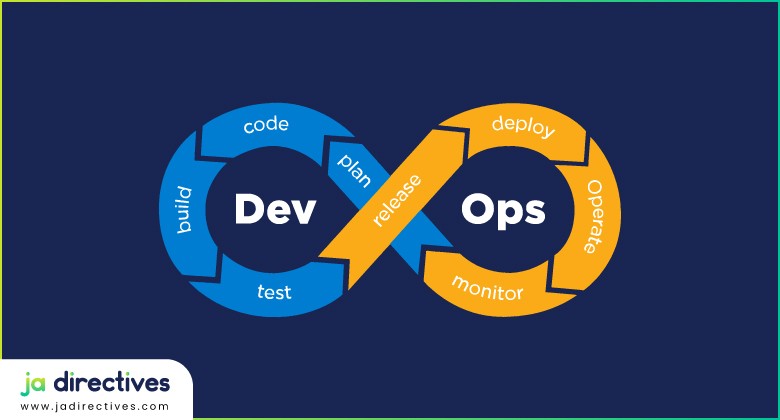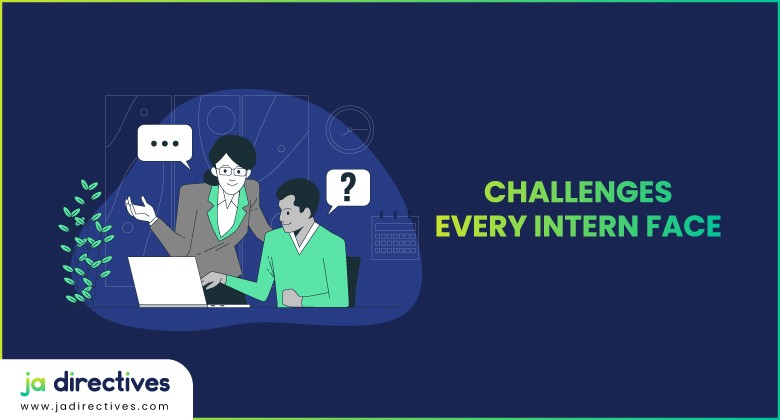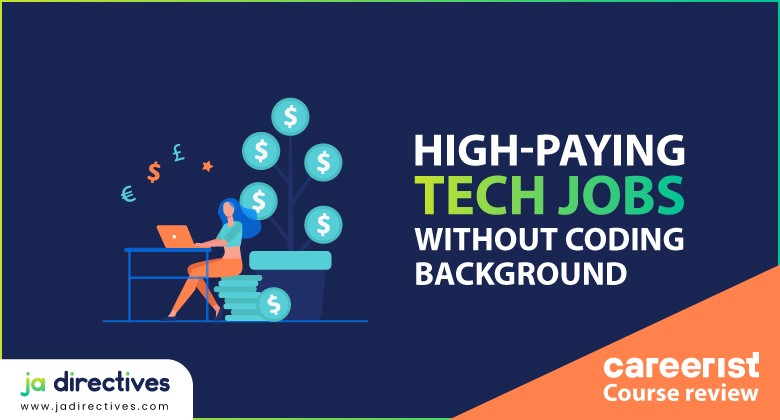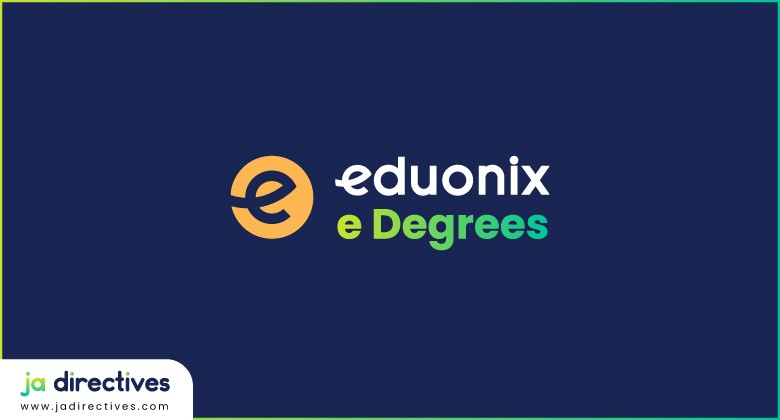Are you looking for the Best DevOps Training Online? Here are the Best DevOps Certification, Tutorial, and Courses 2024.
The experienced DevOps practitioners in the IT industry have over 2.4 million career opportunities with a 22% annual growth rate for the last two years, worldwide.
If you consider the salary for the DevOps industry In Big companies (revenue – exceeding $1 billion) median salary for a DevOps team of 20 members is $118,867. Even small companies pay their DevOps staffers an average of $87,058.
The job titles for persons with a Degree in DevOps include DevOps Engineer, Automation Engineer, DevOps Architect, Security Engineer, and Integration Specialist.
The demand for DevOps experts is increasing in economic sectors which include retail, defense, healthcare, business, and IT services. (Reference: Edureka Masters Program: Dedevops Engineer Training)
In this instance, to assist you to take advantage of the available career opportunities, we have researched online and arranged a list of highly-rated and demanded Best DevOps Certification & Courses including Docker, Jenkins, and other DevOps Online Degrees & Trainings.
18 Best DevOps Training Online, Certification, Tutorial, Course, and Degrees in 2024
1. Best DevOps Training Online Certification Course (Edureka)
BEST SELLER
This course will make you proficient with various DevOps skills like – Continuous Integration, Delivery, and Deployment, Infrastructure as Code, etc.
DevOps Certification Training Includes:
- Basic DevOps principles
- Source Code Management
- Building CI / CD pipelines
- Hands-on experience in Git
- GitHub
- Docker
- Kubernetes
- Puppet, Chef, Ansible
- Nagios, etc.
**If you complete your final course project, Edureka will certify you as a DevOps Engineer.
Students Enrolled: 125K+
Rating: 5.0 out of 5.0
2. Best DevOps Training Online Course: The Complete Kubernetes Course (Udemy)
BEST SELLER
Learn how you can run, deploy, manage, and maintain containerized Docker applications on Kubernetes.
You will learn:
- Install and configure Kubernetes (on your laptop/desktop or production-grade cluster on AWS)
- Use Docker Client (with kubernetes), kubeadm, kops, or minikube to setup your cluster
- Be able to run stateless and stateful applications on Kubernetes
- Use Healthchecks, Secrets, ConfigMaps, and placement strategies using Node/Pod affinity / anti-affinity
- Use StatefulSets to deploy a Cassandra cluster on Kubernetes
- Be able to scale your apps using metrics
- Package applications with Helm and write your Helm charts for your applications
- Automatically build and deploy your own Helm Charts using Jenkins
- Install and use Istio to deploy a service mesh on Kubernetes
- Continuously Develop using Skaffold
Requirements:
- The first lectures in the course will explain how to install the software.
- If you want to install Kubernetes on-prem, there are lectures available in this course covering kubeadm, which can install Kubernetes on a wide variety of environments
- Knowledge about Linux / Docker / AWS is a plus, but not mandatory to be able to do the course
Students Enrolled: 96.2K+
Instructor: Edward Viaene
Rating: 4.4 out of 5.0
3. Docker Technologies for Best DevOps Training Online and Developers (Udemy)
Learn how to develop and deploy web applications with Docker technologies. Take your DevOps skills to the next level.
You will learn:
- Containerize a web-based application with a microservice approach and automate it using Dockerfile
- Design multi-container applications and automate the workflow using Compose
- Scale Docker workflow with Docker Swarm, orchestrate and deploy a large-scale application across multiple hosts in the cloud
- Best practices of working with Docker technology in the field
- In-depth knowledge about Docker technology
- Invaluable DevOps skills such as setting up continuous integration workflows
Requirements:
- A computer running Windows, OSX, or Linux.
- Knowledge of Git and Linux will be preferred.
- Prior experience with Docker Technologies is NOT required.
Students Enrolled: 68K+
Instructor: Tao W. Level Up, James Lee
Rating: 4.6 out of 5.0
4. Best DevOps Certification: Continuously Deliver Better Software in 2024 (Udemy)
Excel in delivering and deploying software using Git, Vagrant, Chef, Ansible, Jenkins, Docker, and Kubernetes
You will learn:
- Apply DevOps to your team
- Understand Continuous Delivery
- Automate the Software Development Lifecycle (SDLC)
- Automate the deployment process
- Reduce release time
- Release better software
- Build a highly available and fully scalable application
- Deploy microservices using Docker and Kubernetes
- Automate using Ansible and Chef
Requirements:
- Understanding the basics of networking and the ability to write code in any programming language.
- Basic system administration concepts.
- You can also use the discussion board to ask questions if something is unclear.
Students Enrolled: 15.3K+
Instructor: Nick Janetekis
Rating: 4.5 out of 5.0
5. The Docker for DevOps Course: From development to production (Udemy)
Updated for Docker v17.06. Learn how to build and deploy web applications with Docker in an automated way.
You will Learn
- Learn how to deploy web applications with Docker
- Ability to serve your web app securely over SSL (HTTPS)
- Confidence to apply for DevOps positions at software companies
**After finishing this course you will have enough knowledge about Docker and general DevOps skills to start applying for jobs.
- A computer with at least 4GBs of RAM running Windows, OSX, or Linux
Students Enrolled: 1.7K+
Instructor: Nick Janetakis
Rating: 4.4 out of 5.0
6. Mastering Git and GitHub (Edureka)
Become a Git & GitHub expert by mastering concepts like Branches, Design, and Git workflow by using Git Command Line, GitHub Desktop, and SourceTree.
The course includes fundamental concepts like Git branch, commits, and progresses to advanced topics like design and Git workflow.
It will cover different components of Git and GitHub and how they are used in software development operations.
The course consists of important concepts like branching & merging, how to deal with conflicts, rebasing, merging strategies, and Git workflows.
You can get an in-depth knowledge of these concepts and will be able to work on related demos. The course creates an understanding of how the industry uses Git in Real-Time Projects.
Students Enrolled: 5.0K+
Rating: 5.0 out of 5.0
7. DevOps: CI/CD using AWS CodePipeline & Elastic Beanstalk (Udemy)
BEST SELLER
Learn Automated Continuous Deployment using AWS CodePipleine, Elastic Beanstalk & Lambda (includes example PHP project).
You will learn:
- Conceptualize and design fully automated continuous integration & deployment pipelines
- Use AWS CodePipeline to setup CI/CD pipelines
- Use AWS Elastic Beanstalk to deploy applications
- Map any real-world application into a CI/CD pipeline
- Integrate custom builds/actions in AWS CodePipeline
- Adding AWS Lambda functions in AWS CodePipeline
- Monitor their AWS CodePipeline
Requirements:
- Basic knowledge of software development processes (code repository, testing, etc.)
- Amazon Web Services (AWS) account (free or paid)
- Basic understanding of AWS services
- Working knowledge of source control systems such as Git
Students Enrolled: 15K+
Instructor: Ali Rizavi
Rating: 4.2 out of 5.0
8. DevOps Certification: Infrastructure Automation With Terraform (Udemy)
BEST SELLER
Learn how to automate your infrastructure with terraforming. Covers Terraform with AWS, Packer, Docker, ECS, EKS, Jenkins
You will learn:
- Understand, use, and apply to terraform
- Know when to use different features
- Use terraform with AWS
- Use Terraform with Packer to create custom images
- Be able to apply DevOps techniques using Terraform
**In this course you’ll learn how to use Terraform to automate your infrastructure.
**You will learn The basics of Terraform and will then explain how to automate infrastructure on AWS using Terraform.
Requirements:
- Should have an AWS account (explained in the course, how to open an account)
Students Enrolled: 95K+
Instructor: Edward Viaene
Rating: 4.4 out of 5.0
9. Continuous Integration with Jenkins Certification Training (Edureka)
Become an expert in Jenkins by mastering Build Pipeline, Reporting, Email & Build plugins, Secure Jenkins, Tomcat 7, and other related concepts
Jenkins is an open-source automation server that enables developers around the world to reliably build, test, and deploy their software.
The average salary of Jenkins Professional is $110k.
**At the end of the course, you have to work on a project. Edureka certifies you as a “Jenkins Developer” based on the project.
Self-Paced Classes: You’ll learn through videos, and PPTs, and complete assignments, projects, and other activities designed to enhance learning outcomes, all at times that are most convenient to you.
Students Enrolled: 10K+
Rating: 5.0 out of 5.0
10. Learn DevOps: CI/CD with Jenkins using Pipelines and Docker (Udemy)
Use Jenkins the DevOps way. Automate your Jenkins jobs by using Jenkins Pipelines, Docker, and the Jenkins Job DSL.
You will learn:
- Use Jenkins to perform Continuous Integration within your Software Development Lifecycle
- Install Jenkins using docker
- Configure Jenkins “The DevOps way”, using Docker, Jobs DSL, and Jenkins Pipelines
- Use plugins to integrate Jenkins with popular development software
- Configure the authentication and authorization options to tighten security on your Jenkins UI
Requirements:
- An understanding of software development in general
- Need to be able to install Jenkins on a PC or Cloud instance.
- A coupon code for $10 free credit on DigitalOcean is provided
Students Enrolled: 81.8K+
Instructor: Edward Viaene
Rating: 4.4 out of 5.0
11. Docker Training and Certification (Edureka)
This Docker Certification course provides an end-to-end learning experience for core Docker technologies, including the Docker Hub, Docker Compose, Docker Swarm, Dockerfile, Docker Containers, Docker Engine, Docker Images, Docker Network, Docker Daemon, and Docker Storage along with real-life case studies.
Edureka’s Docker Certified Associate Training Course is designed keeping in mind the needs of both new learners and professionals looking to appear for the Docker Certified Associate course.
You will learn the origins of containerization technology and move on to create and deploy your own containerized applications.
Skills Covered
- Docker Commands
- Containerization
- Image management and registry
- Storage and volumes
- Cluster monitoring and orchestration
- Networking and security
**Jobs where Docker experience is factored in draw an average salary of $97K across the industry- payscale.com
Students Enrolled: 7K+
Rating: 4.7 out of 5.0
Google Reviews: 4.5 out of 5.0
12. Spring Framework DevOps on AWS (Udemy)
Deploy Spring Boot Applications to the Cloud on AWS
You will learn:
- Deploy Spring Applications to multiple environments
- Manage advanced configuration options for Spring
- Create a server on Amazon AWS
- Launch a Docker container
- Configure Jenkins builds
- Configure Artifactory for use
- Deploy Maven build artifacts to Artifactory
- Use MySQL with Spring Boot
Requirements:
- Java
- Spring Framework (Beginner / Intermediate Level)
- Basic Knowledge of Maven
- Basic Linux Skills
Students Enrolled: 10.7K
Instructor: John Thompson
Rating: 4.5 out of 5.0
13. DevOps Course: Advanced Kubernetes Usage (Udmey)
Covering Authentication, Authorization, Logging, Helm, Deploying with Spinnaker, Prometheus, Scheduling, and more.
You will learn:
- Use enterprise features within Kubernetes
- Set up Kubernetes authentication/authorization
- Do automated deploys on Kubernetes using Spinnaker
- Use centralized logging on Kubernetes using ElasticSearch, Kibana, Fluentd, and LogTrail
- Monitor Kubernetes and applications on Kubernetes with Prometheus
- Proxy Microservices with Linkerd
Requirements:
- The Complete Kubernetes Course is a prerequisite to following this course
- Need to be able to set up your Kubernetes cluster (using Kops, kubeadm, Minikube, or another tooling)
Students Enrolled: 22K+
Instructor: Edward Viaene
Rating: 3.9 out of 5.0
14. Get into DevOps: The Masterclass (Udemy)
Learn Continuous Integration, Continuous Delivery & 15 DevOps tools like Docker, Ansible, Terraform, Jenkins, AWS, and Chef.
You will learn:
- The most popular DevOps tools, such as Docker, Ansible, Terraform, Jenkins, Chef, Puppet, Kubernetes
- DevOps concepts such as Continuous Integration, Continuous Delivery, and Continuous Deployment
- The fundamentals and differences between the most popular cloud platforms: AWS Amazon Web Services, Google Cloud Platform, Microsoft Azure and Openstack
- The basics of building, running and orchestrating Docker containers with Kubernetes, Rancher, and AWS Elastic Container Service
- Implement DevOps ways of working by improving Team Autonomy
- The key design principles for modern development & testing environments
Requirements:
- Do not need prior experience in DevOps
- Do not need to be a software engineer or a systems administrator
- Need a PC running Windows, Linux, or Mac OS
- Create free user accounts on Github, Gitlab, Amazon Web Services, Google Cloud Platform, and Microsoft Azure
Students Enrolled: 4.5K+
Instructor: Releaseworks Academy
Rating: 3.9 out of 5.0
15. DevOps Training: Kubernetes Certification (Edureka)
With the rise of containerization in the world of DevOps, the need for a platform to effectively orchestrate these containers also grew.
Kubernetes, a platform built by Google, steps into this space to help automate the process of deployment, scaling, and managing containerized applications across the clusters.
This Kubernetes course is live, instructor-led & helps you master key Kubernetes concepts, with hands-on demonstrations.
Kubernetes Skills Covered
- KubeAPI server and scheduler
- Kubectl commands
- Kubernetes controllers
- Securing Kubernetes cluster
- Logging and monitoring clusters
- Troubleshooting cluster failures
**Jobs where Kubernetes experience is factored in draw an average salary of $144,288 across the industry – ZipRecruiter.
Students Enrolled: 7K+
Rating: 5.0 out of 5.0
Google Reviews: 4.5 out of 5.0
16. DevOps Engineer Masters Program: Complete & Best DevOps Training
This master’s Program makes you proficient in DevOps principles like CI/CD, Continuous Monitoring, and Continuous Delivery, using tools like Puppet, Nagios, Chef, Ansible, Docker, Git & Jenkins. It includes training on Linux, Python, Docker, AWS Development, and Splunk.
The curriculum has been determined by extensive research on 5000+ job descriptions across the globe.
Duration: 200+ Hours Of Interactive Learning
- Linux Fundamentals Certification Training
- Python Essentials
- DevOps Certification Training
- Docker Training and Certification
- AWS Development Certification Training
- Splunk Power User & Admin Certification
No of Courses: 10 Courses
Hours Of Interactive Learning: 200+
Schedule: Flexible
Free Elective Self-Paced Courses along with learning path:
- Continuous Integration with Jenkins Certification Training
- Puppet Certification Training
- Chef Certification Training
- Ansible Certification Training
- Mastering Git and GitHub
- MongoDB Certification Training
17. DevOps Certification Training Course (Edureka)
BEST SELLER
Edureka’s DevOps training is designed for IT professionals who want to become successful DevOps engineers.
In this DevOps certification, you will learn the crucial concepts of DevOps.
This certification in DevOps has helped professionals effectively learn DevOps online.
Enroll in our DevOps course to master Git, Jenkins, Docker, Ansible, and more!
DevOps Skills Covered:
- Source Code Management
- Continuous Integration
- Continuous Deployment
- Logging and Monitoring Clusters
- Configuration Management
- Provisioning and Monitoring Resources
The Course Includes:
- Introduction to DevOps
- Benefits of working in a DevOps environment
- DevOps Lifecycle
- DevOps Stages
- DevOps Delivery Pipeline
DevOps Training Course Benefits:
The DevOps market is expected to grow from USD 3.42 Billion in 2018 to USD 10.31 Billion by 2024, at a Compound Annual Growth Rate (CAGR) of 24.7%.
Edureka DevOps training will help you land in high-paying job & position as a DevOps Engineer.
Rating: 4.7 out of 5.0
Google Reviews: 4.5 out of 5.0
18. Introduction to DevOps (Coursera)
BEST SELLER
Experience: Beginner Level.
Modules in This Course –
- Overview of DevOps
- Thinking DevOps
- Working DevOps
- Organizing for DevOps
- Measuring DevOps
- Case Studies and Final Exam
You will Learn –
- The essential characteristics of DevOps include building a culture of shared responsibility, transparency, and embracing failure.
- The importance of Continuous Integration and Continuous Delivery, Infrastructure as Code, Test Driven Development, Behavior Driven Development.
- Essential DevOps concepts: software engineering practices, cloud-native microservices, automated continuous deployments, and building resilient code.
- The organizational impact of DevOps, including breaking down silos, working in cross-functional teams, and sharing responsibilities.
Skill Gained –
- CI/CD
- Agile
- DevOps
- TDD/BDD
- Cloud Native
Offered By: IBM
Instructor: John Rofrano
Student Enrolled: 96,790+
Rating: 4.8 out of 5.0
You may also Like:
- 8 Best Edureka Online Masters Programs to Build Specific Professional Expertise in 2024
- 13 Best AWS Certification Training Online, Courses 2024
- 30 Best IT Certifications Online, Training, Courses in 2024
- 10 Best Docker Tutorial, Training, Certification & Courses for Developers in 2024
- 29 Best Data Analytics Certification Online, Courses, and Tutorial 2024
If this post was helpful, please share it with your friends, family, and social media so that they get this information!
Jamil Ahmed, CEO of “Reinforce Lab”. Pharmacist, with experience in numerous fields in Pharmaceutical Companies and also worked in several pharmaceutical companies for over 5 years in International Business.
Digital innovator, Personal Branding, Small Business, SEO Marketer, and Marketing Consultant. Named as the Top 3 Business Intelligence Marketing Influencer in 2018 by Onalytica. Top 20 eCommerce Online Seller & Influencer by SaleHoo and Top 8 eCommerce Influencer by FitSmallBusiness. Regularly Share tips and tricks for effective Personal Branding, Digital Marketing, Social Media Marketing, Small Business, Entrepreneurship, and Latest Technology Integration in Business by building relationships, and by telling stories.
Read more about him.
Follow him on Twitter @jamilahmed_16 and LinkedIn https://www.linkedin.com/in/ahmedjamil16





